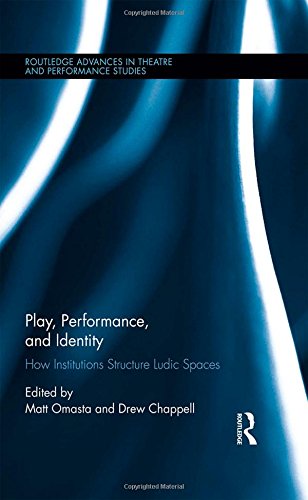

Most ebook files are in PDF format, so you can easily read them using various software such as Foxit Reader or directly on the Google Chrome browser.
Some ebook files are released by publishers in other formats such as .awz, .mobi, .epub, .fb2, etc. You may need to install specific software to read these formats on mobile/PC, such as Calibre.
Please read the tutorial at this link: https://ebookbell.com/faq
We offer FREE conversion to the popular formats you request; however, this may take some time. Therefore, right after payment, please email us, and we will try to provide the service as quickly as possible.
For some exceptional file formats or broken links (if any), please refrain from opening any disputes. Instead, email us first, and we will try to assist within a maximum of 6 hours.
EbookBell Team

4.0
86 reviewsPlay helps define who we are as human beings. However, many of the leisurely/ludic activities people participate in are created and governed by corporate entities with social, political, and business agendas. As such, it is critical that scholars understand and explicate the ideological underpinnings of played-through experiences and how they affect the player/performers who engage in them.
This book explores how people play and why their play matters, with a particular interest in how ludic experiences are often constructed and controlled by the interests of institutions, including corporations, non-profit organizations, government agencies, religious organizations, and non-governmental organizations (NGOs). Each chapter explores diverse sites of play. From theme parks to comic conventions to massively-multiplayer online games, they probe what roles the designers of these experiences construct for players, and how such play might affect participants' identities and ideologies. Scholars of performance studies, leisure studies, media studies and sociology will find this book an essential reference when studying facets of play.